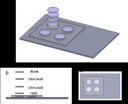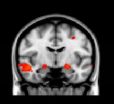(Press-News.org) A new study led by Johns Hopkins Bloomberg School of Public Health researchers suggests that getting patients in India quickly evaluated by the right doctors can be just as effective at curbing tuberculosis (TB) as a new, highly accurate screening test.
While ideally all suspected TB cases would be evaluated with the new test, it is primarily being used only on the highest-risk populations and only in public health clinics, partly because of its cost and the complexity of the nation's health care system. This slows diagnosis of a disease that must be caught early, the researchers say.
A report on the research, conducted in conjunction with researchers at McGill University and others, is published July 15 in the journal PLOS Medicine.
Approximately 8.6 million people worldwide develop active TB each year, and 1.4 million die from it. Twenty-five percent of all diagnosed TB patients are in India alone. Although treatment for TB is freely available and highly effective, TB continues to kill hundreds of thousands of people every year in India, and vast numbers of cases go undetected. Public TB clinics are better equipped to quickly diagnose and begin treatment for the disease, but patients are often reluctant to utilize them. The researchers say that for better TB tests to make a major difference they must be made available to the private health care providers where patients first seek care.
"Most people in India with underlying TB initially seek care for cough from the private health care sector," notes the study's lead author Henrik Salje, PhD, a postdoctoral fellow in the School's Department of Epidemiology. "Private providers often use the wrong tests for TB, and without getting the right diagnosis, patients move between providers with long diagnostic delays."
Often, patients with symptoms start with convenient and more trusted private sector physicians and informal health care providers, but ultimately public sector physicians diagnose and treat more than half of the TB cases in India. They have long used sputum smear microscopy, which may miss up to half of all active cases.
The new test for TB, Xpert MTB/RIF, can diagnose TB in 90 minutes, capture 70 percent of cases missed by microscopy and can also determine if the strain is resistant to rifampin, the most important anti-TB drug. India has begun rolling out this new technology, but since Xpert MTB/RIF is much more expensive than traditional tests, it is currently being implemented mainly in public clinics to test HIV-positive patients who may also have TB or those at high risk of having multidrug-resistant tuberculosis (MDR-TB).
For their study, the researchers explored the impact of six different rollout strategies by developing a mathematical model of TB transmission, care-seeking and diagnostic and treatment practices in India. They found that providing access to Xpert for 20 percent of all individuals seeking care for TB symptoms could reduce new TB cases by 14.1 percent over 5 years, while the "high-risk-only," public-sector strategy currently being implemented might only reduce TB cases by 0.2 percent. However, achieving this result required substantially more resources and appropriate TB treatment. The authors also found that simply improving the referral network of informal providers to the public sector – without any new testing at all – could have as much of an effect on TB as scaling up the new Xpert test.
"The impact of better TB diagnosis depends not only on the accuracy of the test, but also on the behavior of both patients and providers, good access to validated new tools, and quality TB treatment following diagnosis," says the study's senior author David W. Dowdy, MD, PhD, an assistant professor in the Department of Epidemiology. "To achieve maximum impact of novel diagnostics, India should engage the private sector, improve quality of care across all sectors, and dramatically increase the resources used to fight TB."
INFORMATION:
"The Importance of Implementation Strategy in Scaling Up Xpert MBT/RIF for Diagnosis of Tuberculosis in the Indian Health-Care System: A Transmission Model," was written by Henrik Salje, Jason R. Andrews, Sarang Deo, Srinath Satyanarayana, Amanda Y. Sun, Madhukar Pai, and David W. Dowdy.
This study was funded by grants from the Bill & Melinda Gates Foundation and the Canadian Institutes of Health Research.
Rollout strategy is key to battling India's TB epidemic, researchers find
2014-07-15
ELSE PRESS RELEASES FROM THIS DATE:
New assay to spot fake malaria drugs could save thousands of lives
2014-07-15
CORVALLIS, Ore. – Chemists and students in science and engineering at Oregon State University have created a new type of chemical test, or assay, that's inexpensive, simple, and can tell whether or not one of the primary drugs being used to treat malaria is genuine – an enormous and deadly problem in the developing world.
The World Health Organization has estimated that about 200,000 lives a year may be lost due to the use of counterfeit anti-malarial drugs. When commercialized, the new OSU technology may be able to help address that problem by testing drugs for efficacy ...
3-D nanostructure could benefit nanoelectronics, gas storage
2014-07-15
A three-dimensional porous nanostructure would have a balance of strength, toughness and ability to transfer heat that could benefit nanoelectronics, gas storage and composite materials that perform multiple functions, according to engineers at Rice University.
The researchers made this prediction by using computer simulations to create a series of 3-D prototypes with boron nitride, a chemical compound made of boron and nitrogen atoms. Their findings were published online July 14 in the Journal of Physical Chemistry C.
The 3-D prototypes fuse one-dimensional boron nitride ...
TGen-led study finds likely origin of lung fungus invading Pacific Northwest
2014-07-15
FLAGSTAFF, Ariz. - Cryptococcus gattii, a virulent fungus that has invaded the Pacific Northwest is highly adaptive and warrants global "public health vigilance," according to a study by an international team led by the Translational Genomics Research Institute (TGen).
C. gattii, which likely originated in Brazil, is responsible for dozens of deaths in recent years since it was first found in 1999 on Vancouver Island, British Columbia, Canada, well outside its usual tropical habitats.
"We identified several genes that may make the outbreak strains more capable of surviving ...
Rice nanophotonics experts create powerful molecular sensor
2014-07-15
Nanophotonics experts at Rice University have created a unique sensor that amplifies the optical signature of molecules by about 100 billion times. Newly published tests found the device could accurately identify the composition and structure of individual molecules containing fewer than 20 atoms.
The new imaging method, which is described this week in the journal Nature Communications, uses a form of Raman spectroscopy in combination with an intricate but mass reproducible optical amplifier. Researchers at Rice's Laboratory for Nanophotonics (LANP) said the single-molecule ...
SLU scientists hit 'delete': Removing regions of shape-shifting protein explains how blood clots
2014-07-15
ST. LOUIS – In results recently published in Proceedings of the National Academy of Sciences (PNAS), Saint Louis University scientists have discovered that removal of disordered sections of a protein's structure reveals the molecular mechanism of a key reaction that initiates blood clotting.
Enrico Di Cera, M.D., chair of the Edward A. Doisy department of biochemistry and molecular biology at Saint Louis University, studies thrombin, a key vitamin K-dependent blood-clotting protein, and its inactive precursor prothrombin (or coagulation factor II).
"Prothrombin is essential ...
New skin gel fights breast cancer without blood clot risk
2014-07-15
CHICAGO --- A gel form of tamoxifen applied to the breasts of women with noninvasive breast cancer reduced the growth of cancer cells to the same degree as the drug taken in oral form but with fewer side effects that deter some women from taking it, according to new Northwestern Medicine® research.
Tamoxifen is an oral drug that is used for breast cancer prevention and as therapy for non-invasive breast cancer and invasive cancer.
Because the drug was absorbed through the skin directly into breast tissue, blood levels of the drug were much lower, thus, potentially ...
Game theory model reveals vulnerable moments for cancer cells' energy production
2014-07-15
Cancer's no game, but researchers at Johns Hopkins are borrowing ideas from evolutionary game theory to learn how cells cooperate within a tumor to gather energy. Their experiments, they say, could identify the ideal time to disrupt metastatic cancer cell cooperation and make a tumor more vulnerable to anti-cancer drugs.
"The reality is that we still can't cure metastatic cancer that has spread from its primary organ and game theory adds to our efforts to attack the problem," says Kenneth J. Pienta, M.D., the Donald S. Coffey Professor of Urology at the Johns Hopkins ...
Adolescent males seek intimacy and close relationships with the opposite sex
2014-07-15
July 15, 2014 -- Teenage boys desire intimacy and sex in the context of a meaningful relationship and value trust in their partnerships, according to researchers at Columbia University's Mailman School of Public Health. The research provides a snapshot of the development of masculine values in adolescence, an area that has been understudied. Findings are online in the American Journal of Men's Health.
The researchers studied 33 males who ranged from 14 to 16 years of age to learn more about how their romantic and sexual relationships developed, progressed, and ended. ...
Fish oil supplements reduce incidence of cognitive decline, may improve memory function
2014-07-15
PROVIDENCE, R.I. –Rhode Island Hospital researchers have completed a study that found regular use of fish oil supplements (FOS) was associated with a significant reduction in cognitive decline and brain atrophy in older adults. The study examined the relationship between FOS use during the Alzheimer's Disease Neuroimaging Initiative (ADNI) and indicators of cognitive decline. The findings are published online in advance of print in the journal Alzheimer's & Dementia.
"At least one person is diagnosed every minute with Alzheimer's disease (AD) and despite best efforts, ...
Brain responses to emotional images predict PTSD symptoms after Boston Marathon bombing
2014-07-15
The area of the brain that plays a primary role in emotional learning and the acquisition of fear – the amygdala – may hold the key to who is most vulnerable to post-traumatic stress disorder.
Researchers at the University of Washington, Boston Children's Hospital, Harvard Medical School and Boston University collaborated on a unique opportunity to study whether patterns of brain activity predict teenagers' response to a terrorist attack.
The team had already performed brain scans on Boston-area adolescents for a study on childhood trauma. Then in April 2013 two bombs ...



